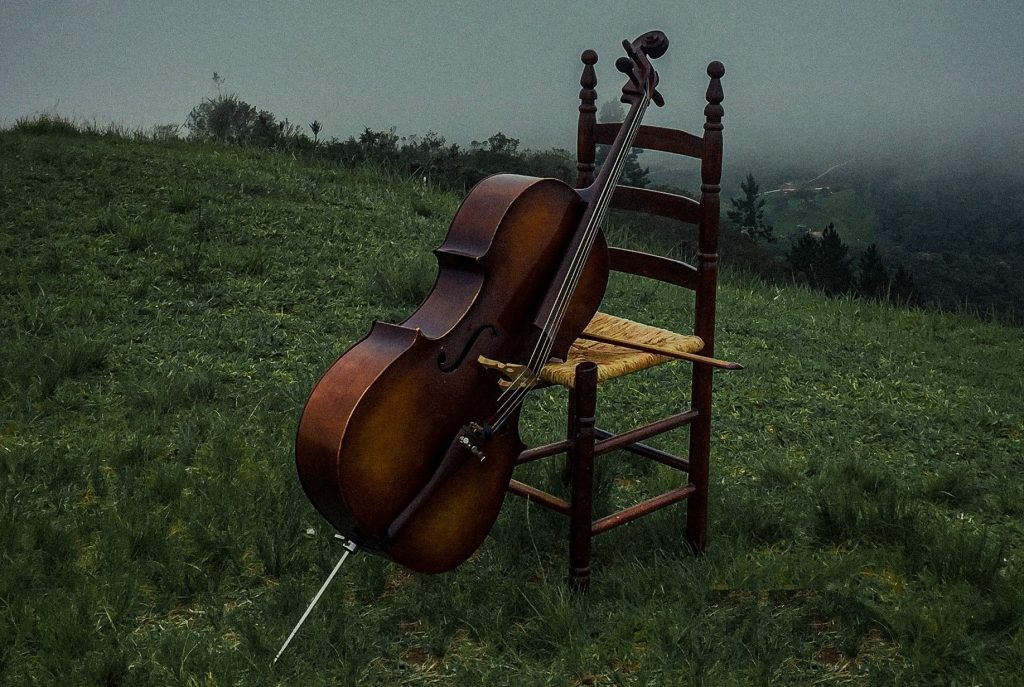
Community Innovation Practitioner Georgina Aasgaard shares insights on her work with Liverpool Philharmonic and Mersey Care NHS Foundation Trust on their Music and Health programme, and her hopes for her CIP research for the year ahead.
‘Music can transcend what medication can’t.’ These were the words of Life Rooms participants who call themselves ‘The Music Promoters’. Life Rooms is a free NHS service unique to Liverpool, providing a safe and welcoming space to support people living with mental health challenges through community resources and social prescribing. The Music Promoters were invited to take the stage in the Music Room on the 13th October 2023 to celebrate the 15 year partnership between the Liverpool Philharmonic and Mersey Care NHS Foundation Trust on their Music and Health programme.
Eight service users presented a co-produced performance alongside a string quartet from the Philharmonic to showcase what music has meant in their mental health recovery journey, and the meaning and benefits of their relationship with orchestral musicians over the years. Two performances were held on the theme ‘From darkness to light’, one for family and friends and one for invited guests including arts and health organisations, funders and policy makers. We call these performances – which are a regular feature of the Music and Health programme – sharing events. On this occasion, the sharing events consisted of a short film about the partnership, individual introductions by each participant, pieces of classical music reflecting the transition from darkness to light (the beginning of Mozart Dissonance quartet The Nature of Daylight by Richter, and excerpts from Vivaldi’s Four Seasons), reading of poems, and a co-created medley composed out of the participants’ words and musical ideas. The performances finished with a song, ‘These are the Stories of our Lives’, in which participants sang their hearts out about ‘having broken through the dark because music transcends what medication can’t.’ Both audiences gave the performers a standing ovation, emotions and tears were shared, and a unique sense of togetherness and uplift filled the Music Room on Hope Street.
If you stop and think about what it takes, first, to go on a stage, and second, to open up in public about your mental health, you wonder what the process is, and what makes people brave enough to do so. I’ve had the privilege to facilitate these performances and be part of the partnership, as a lead musician, since the very beginning. Through the process of co-creating these performances over the course of 10 weekly sessions, we connected, collaborated, created, co-produced, committed but mainly cared for each other. By sharing the music we love in a non-hierarchical and safe space, we exchanged, we discovered new music, we learnt skills and we curated something unique, ‘a world premiere’, in which each of us contributed in our own ways. That safe space enabled the participants to express themselves through music and gave them an opportunity to have a voice and a choice in their recovery journey.

My practice has been transformed by 15 years of shared experiences with inpatients across all the mental health units on Merseyside as well as with community members in the Life Rooms. It has been the most enriching journey in which I have learnt so much from people who were at the most painful and vulnerable times of their lives. I’ve seen patients on high dependency wards discover they had a voice to express themselves through words or singing, commit themselves to learn to read and compose music, research classical composers. I have seen community members create poems, stories, art works inspired by music. I’ve seen people becoming friends and gaining the confidence to stand on a stage. I’ve seen patients share how they feel through music with so much honesty. I’ve seen staff relaxing, discovering a different side to their patients’ personalities. I’ve seen managers from NHS Trusts and arts organisations work together to make their programmes sustainable. I have seen musicians being transformed by the experience of connecting with people through music, away from the concert hall. I’ve seen ushers and technical staff giving so much care to fully embrace the collaborative process of putting on a performance with people who struggle with their mental health. I’ve heard participants tell me ‘you have saved lives’.
As I embark on my CIP journey, these poignant lived experiences make me reflect on ways in which practitioners can help integrate people’s voices in research and empower local communities to be part of decision making in mental health recovery. I have learnt over my 20 years of experience working in health and social settings that mental health is a shared responsibility and that partnership working starts from the ground. It starts with the relationships you create with people in need. Only if we truly listen to each other, can we reflect, reshape, remap and grow together. As our Music Promoters put it:
We live in perpetual transition; we go through stages and take new directions like the changing seasons. These are pivotal points, and we learn through the process. We learn that you’ve got to believe in yourself, that you can do it. Music has given us back an identity and creativity has given us a sense of achievement.
Georgina Aasgaard is a Community Innovation Practitioner from the 2023 cohort. You can find more of her work on our website or read about the 2023 CIP programme.
Brought to you by


